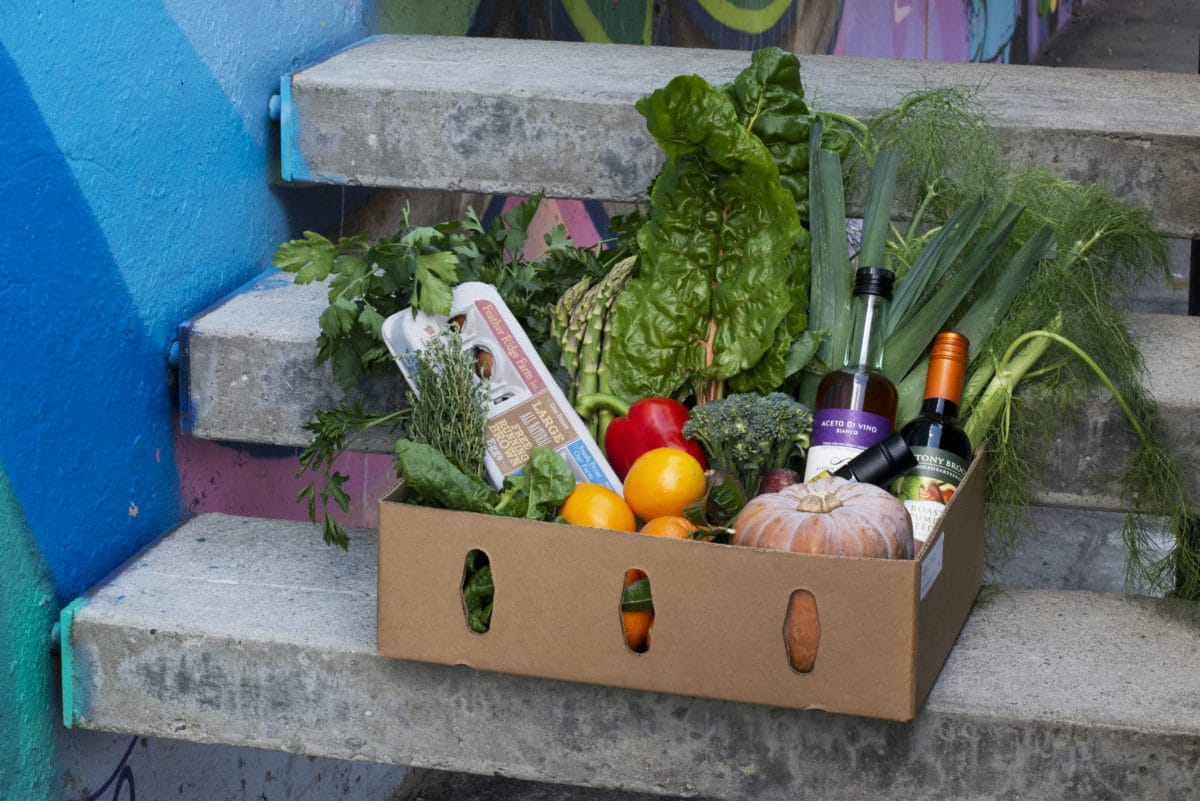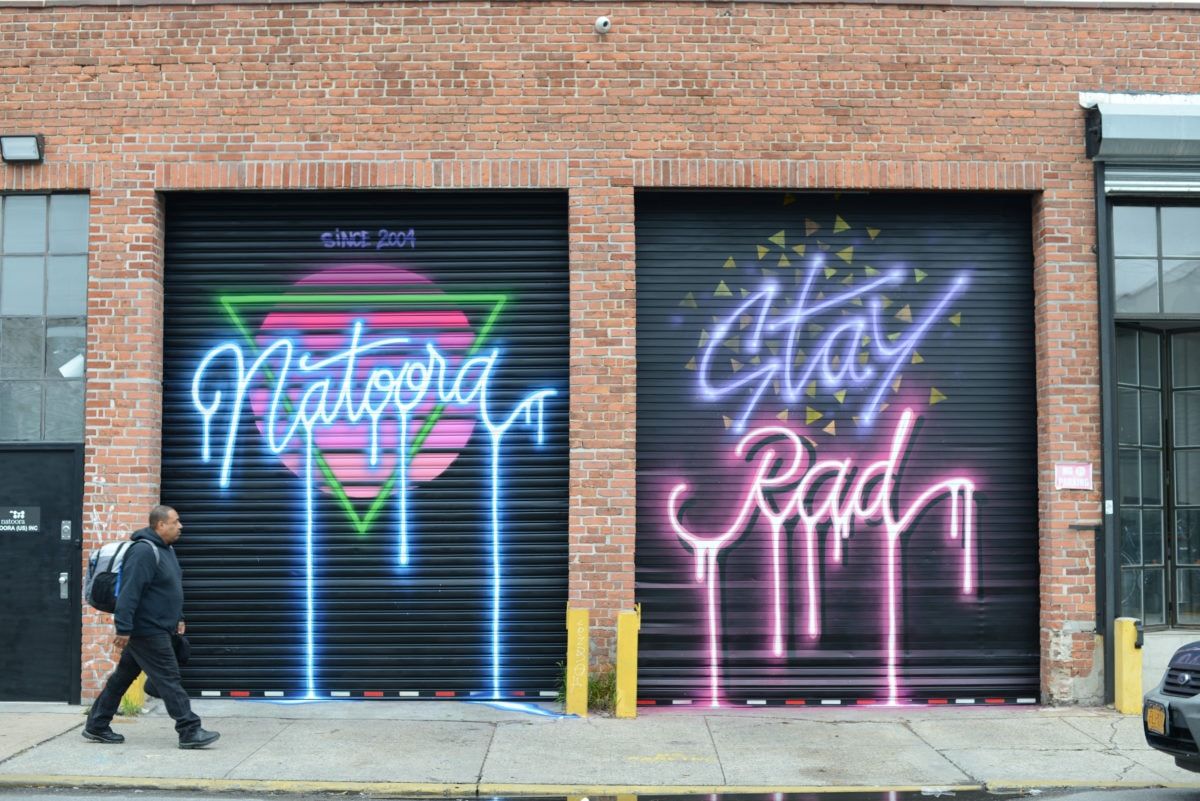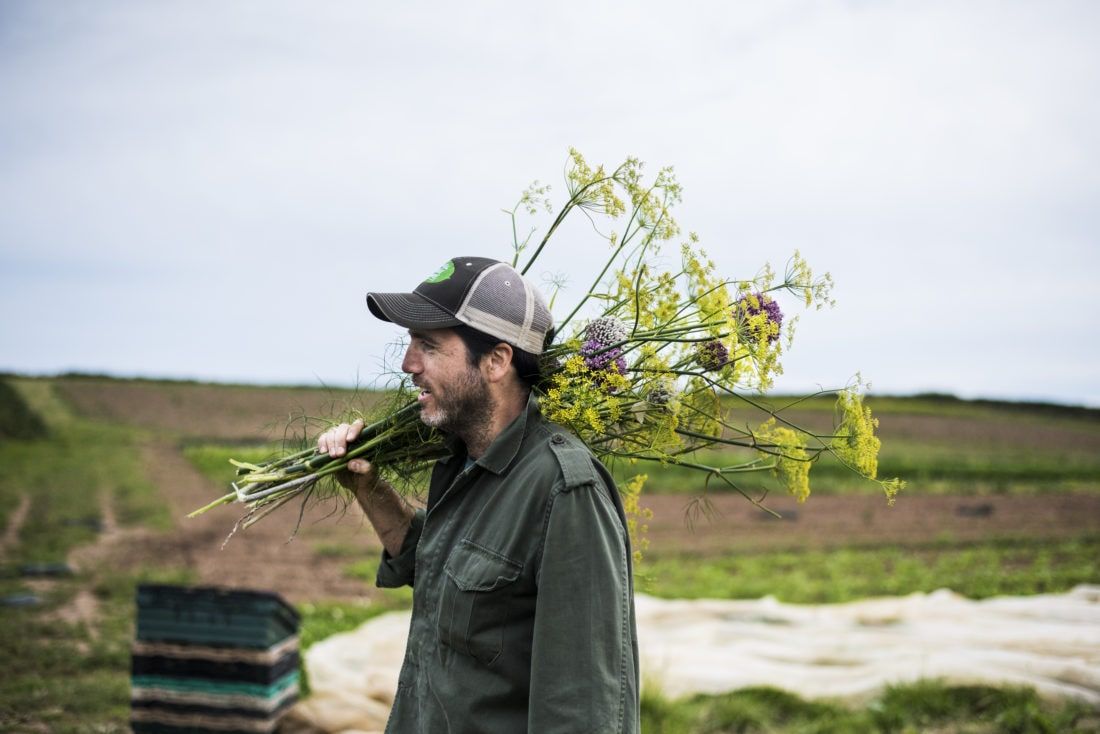Natoora Pivots Food Distribution For A New Reality


With its base in East Williamsburg, the North American branch of Natoora used to source and supply seasonal and unique fruit and vegetables as well as other pantry and refrigerated goods from small farms with an interest in sustainability to restaurant kitchens.
With the onset of Covid-19 many of the restaurants Natoora supplied were shuttered with just a few days notice. Rather than following suit, the company pivoted its business in Brooklyn from supplying restaurants to delivering directly to individuals. “A couple things came together,” Franco Fubini, the founder of Natoora told Bklyner. Natoora started out 15 years ago as an online startup, similar to an online farmers market. Although they moved to only selling to restaurants, this prior experience delivering directly to homes came in handy in the current crisis. Additionally, they had an online platform in place that was used by chefs to place orders making the switch to retail sales an easy one.

“The way we approached the pivot was by leveraging all of our existing infrastructure,” said Fubini. They were able to use the systems they already had — for instance delivery personnel and vehicles, and the aforementioned online platform — to process orders and deliver that food straight to consumers. “Operationally, it flowed very neatly into what we were already geared up to do for the restaurants,” he added.
With the move to cooking and consuming more food at home, Franco Fubini hopes that there is an increased awareness and drive towards sustainable consumption and “a desire to be more transparent with the purchases that we make in food.” Customers are also gaining exposure to seasonal foods they may not have cooked at home previously – agretti, ramps, and Easter egg radishes are just a few examples of their spring offerings.
He hopes that restaurants will “embrace” a more educated consumer, and that seasonality and eating local becomes a norm that carries across the industry and is not just confined to high-end restaurants. Within this model, maybe restaurants will move away from industrial farming and provide further transparency for the diners, “I do believe that if consumers come out of this with a heightened level of education. I can see that level of knowledge will feed into what they expect of restaurants going forward,” Fubini said. “It has been impressive over the past two months, the support that we have had from our farmers and throughout the supply chain, and how everything has been relatively unaffected.”

This puts Natoora at a unique position in the food supply world right now. We have been peppered with photos and reports over the past few months of wasted food — from potatoes in Idaho to dairy farmers dumping out millions of gallons of milk every day even as people are suffering from lack of food — the large scale food production system in the United States has an inability to adapt quickly, and thus some of the food that people could actually use right now has been disposed of. Due to the supply chain they manage, and their model of working directly with the farms who provide their food, Natoora has been able to reinvent themselves and keep buying their products at the same levels they bought them pre Covid-19.
Yet still, the restaurants are incredibly important to the food system as a whole, and Natoora would not be the business that it is without them. “We are trying to support [restaurants] in any way we can and for them to continue being a big driving force going forward.” A company like Natoora could be providing a model that cities should look to encourage as they think of ways to keep food supply chains resilient in times of crisis.
When asked about his thoughts about the future of the restaurants in a post Covid-19 world, Fubini believes that “The restaurant industry is about hospitality, it’s not about food,” and with the loss of the ability to be able to dine out in crowded restaurants with other people, much of the draw of restaurants is lost. “I do think that the restaurant industry and the people that sit behind [it] are very resourceful and very passionate, so I’m convinced there will be a way out and a very bright future for the industry.”
They plan to continue to serve directly to consumers after Covid-19 is behind us, and will continue to attempt to expand what people cook and eat.




